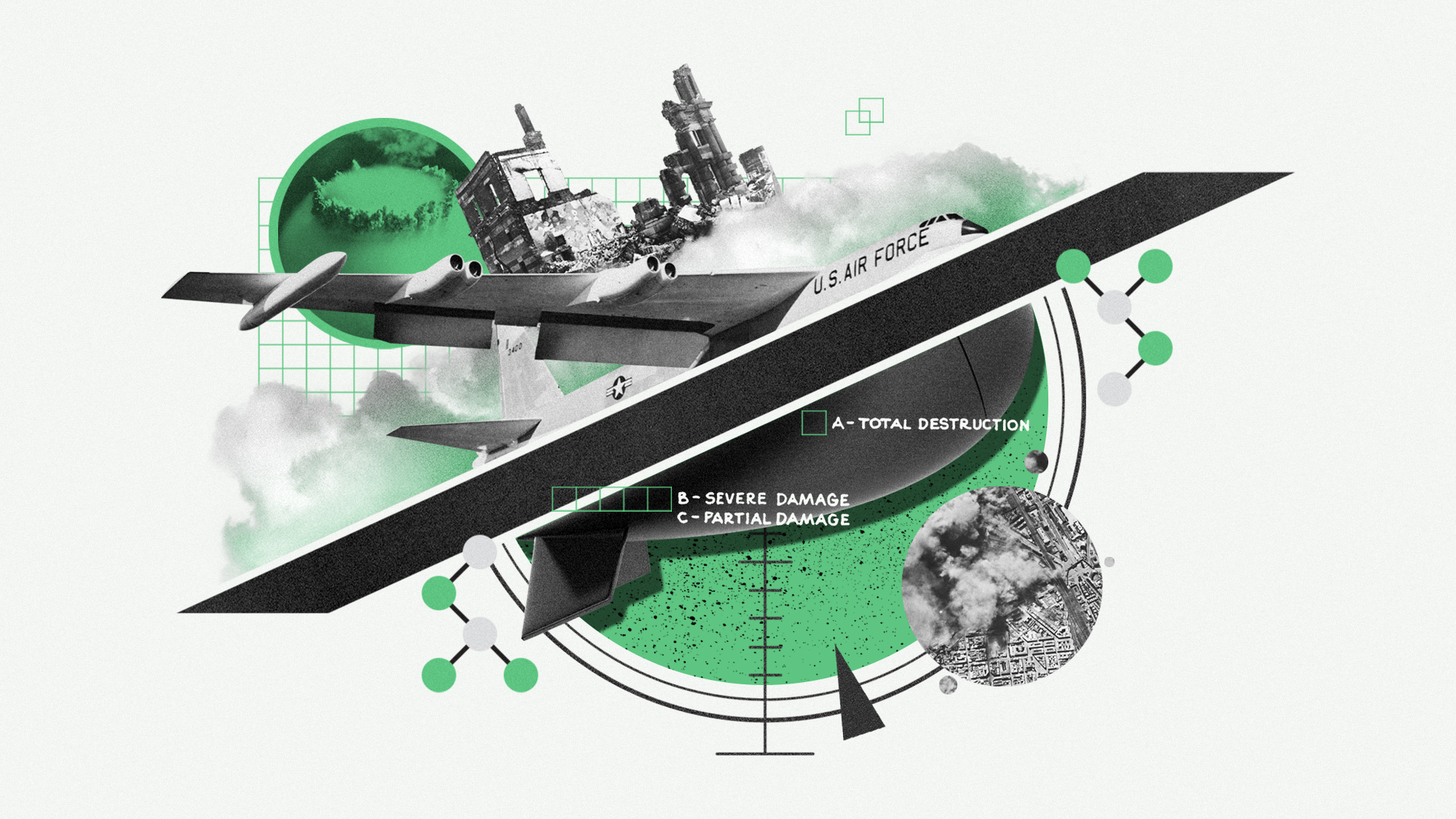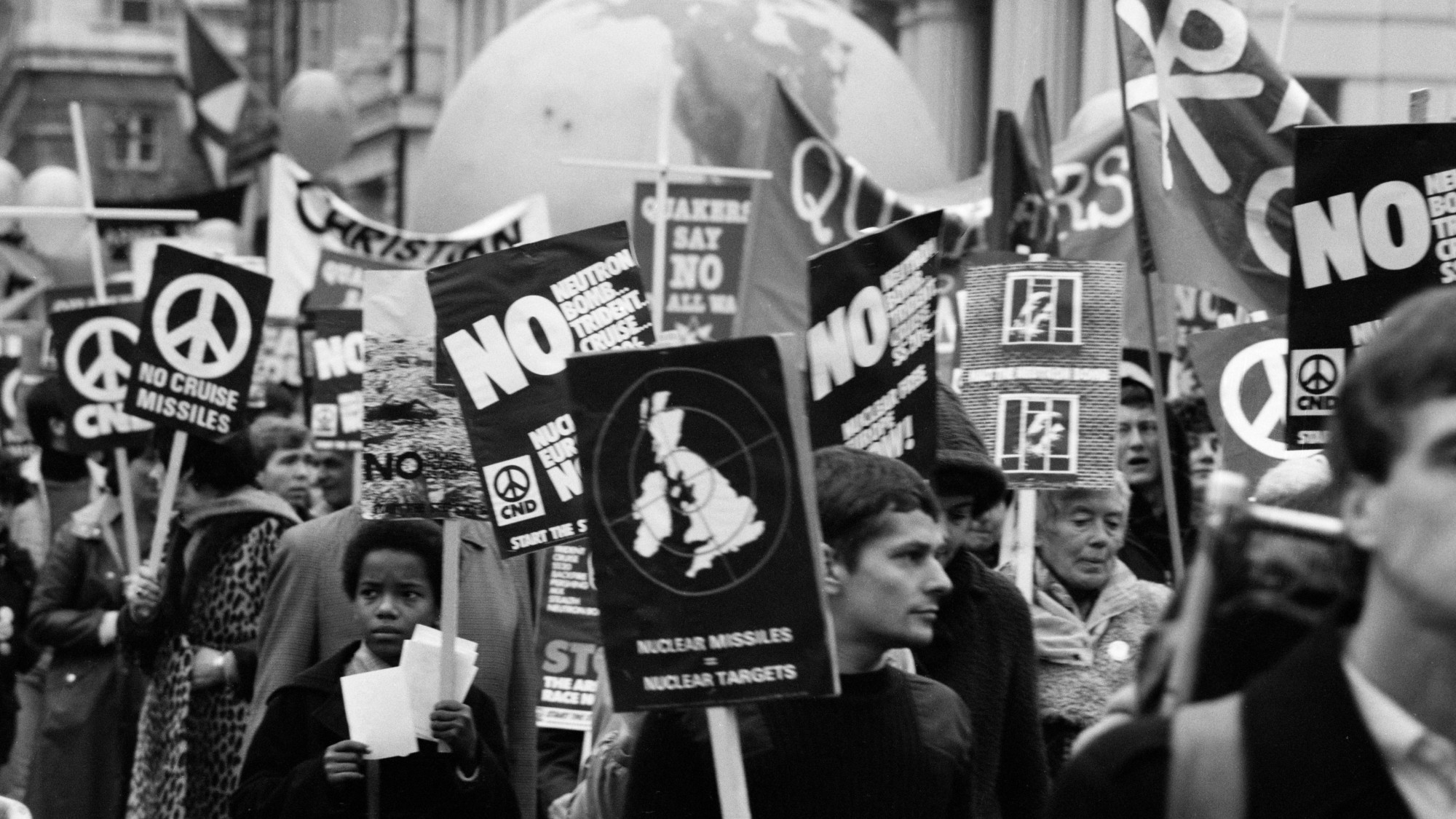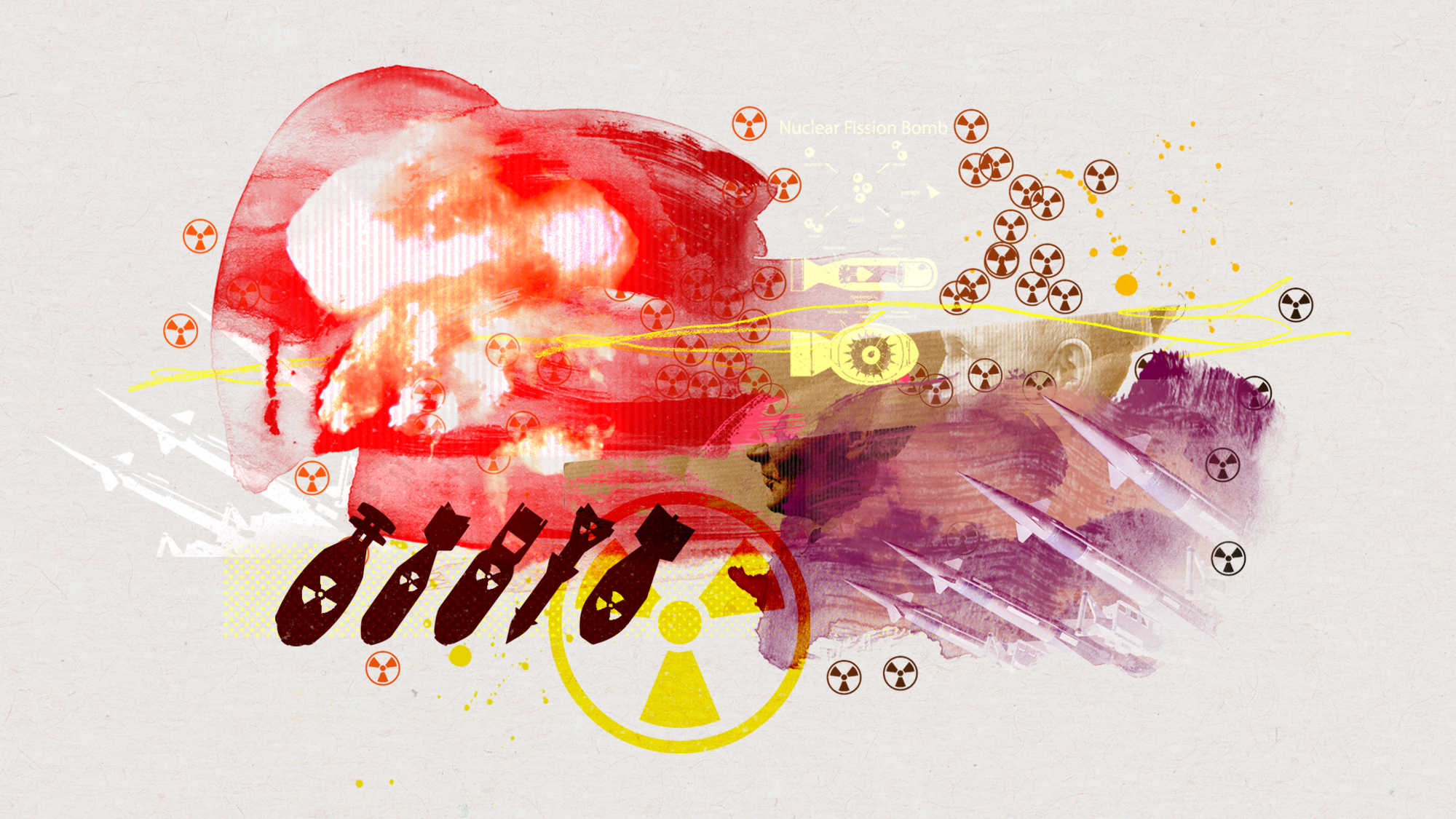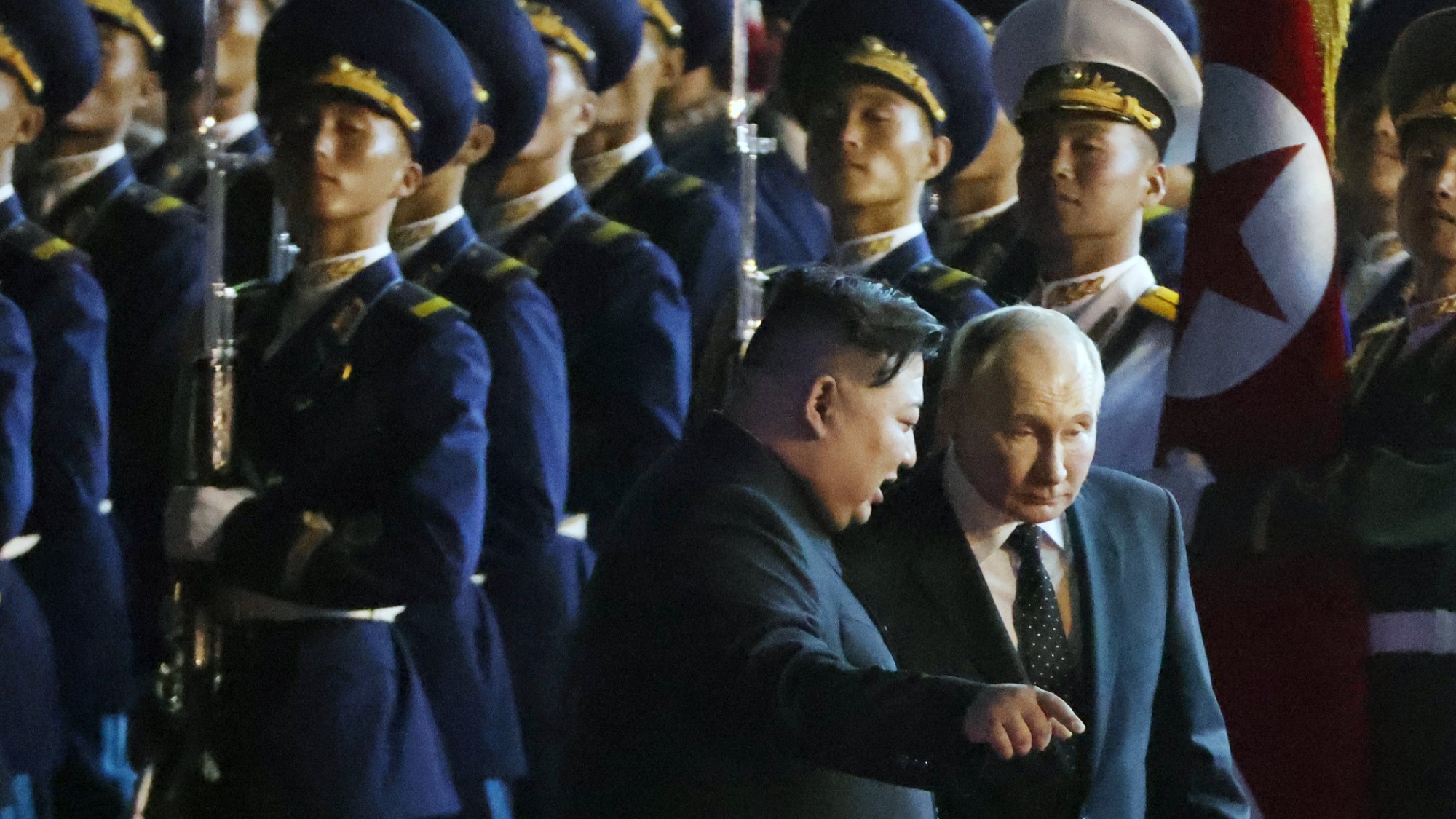Nuclear near-misses
From technical glitches to fateful split-second decisions, the world has come to the brink of nuclear war more times than you might think

A free daily email with the biggest news stories of the day – and the best features from TheWeek.com
You are now subscribed
Your newsletter sign-up was successful
The recent spate of attacks between Israel and Iran have ratcheted up tensions in the region and stoked fears of an imminent nuclear war.
Ali Vaez, the Iran director of the International Crisis Group, told The New York Times that "if we get into another round of tit for tat, it can easily spiral out of control" into a conflict affecting the "entire world".
Since the development of nuclear weapons during the Second World War, there have been more than a dozen "close calls" – incidents in which the deployment of such weapons was only narrowly avoided. These "perilously close shaves" expose the issues created by the "deeply flawed brains of bipedal apes" having control over "weapons with the power to flatten entire cities", said the BBC.
The Week
Escape your echo chamber. Get the facts behind the news, plus analysis from multiple perspectives.

Sign up for The Week's Free Newsletters
From our morning news briefing to a weekly Good News Newsletter, get the best of The Week delivered directly to your inbox.
From our morning news briefing to a weekly Good News Newsletter, get the best of The Week delivered directly to your inbox.
1961: Nukes over North Carolina
A fuel leak caused a US Air Force B-52 Stratofortress carrying two hydrogen bombs to lose power over Goldsboro, North Carolina. The aircraft broke up on descent, releasing its payload of two 3.8 megaton Mark 39 warheads, "260 times more powerful than the device that devastated Hiroshima", said The Guardian.
One of the bombs crash-landed, sustaining critical damage. However, the other warhead parachuted to the ground intact as designed, and three of the four switches designed to prevent unintentional detonations failed. "It was only that final, highly vulnerable switch that averted calamity."
Just two months later, another B-52 carrying Mark 39 warheads crash-landed over Yuba City, California. In this instance, the safety features on both bombs worked as designed.
1962: The Man Who Saved the World
At the height of the Cuban Missile Crisis, US Navy destroyers detected a Soviet submarine off the coast of Cuba. They surrounded the vessel and began dropping depth charges intended to force it to the surface, unaware the submarine was equipped with nuclear torpedoes.
A free daily email with the biggest news stories of the day – and the best features from TheWeek.com
With no way to contact Moscow, the final decision about whether to deploy the nuclear weapons fell to the submarine's executive officer, Vasily Arkhipov. Resisting pressure from the captain and two other senior officers, who all pushed for an attack, Arkhipov instead ordered the submarine to surface and identify itself to the US battleships.
Arthur M. Schlesinger Jr, aide to president John F. Kennedy, later called it "the most dangerous moment in human history".
1983: The (Other) Man Who Saved the World
On 26 September 1983, early-warning missile detection systems at a Soviet air force command centre near Moscow reported that multiple intercontinental ballistic missiles from the US were heading for the USSR.
This was a time of high tension between the two nations, following "months of hair-trigger alerts" over airspace, said Air & Space Forces magazine.
Fortunately, that evening's watch commander, Lt Col. Stanislav Petrov, suspected a false alarm and persuaded his superior officers to await further confirmation. It was later established that unusual atmospheric conditions had triggered the system's sensors, but without Petrov's intervention, "the world would have been plunged into global nuclear war".
1995: Yeltsin's nuclear briefcase
Even the end of the Cold War in 1991 didn't spell an end to hair-raising close calls. On 25 January 1995, early-warning radar operators detected a missile launch off the Norwegian coast, within range for an attack on Moscow. Within minutes, president Boris Yeltsin had been handed Moscow's "nuclear briefcase" and was monitoring the missile's progress on the terminal's screen.
Had Yeltsin wished to push the infamous button giving permission to launch retaliatory missiles before the supposed US attack, he had "about eight minutes" to do so, said The Washington Post. "Confusion reigned" until it became clear that the mysterious projectile was not heading for Russia. It later transpired the "missile" was a Norwegian-US research rocket launched to study the Northern Lights.
Rebecca Messina is the deputy editor of The Week's UK digital team. She first joined The Week in 2015 as an editorial assistant, later becoming a staff writer and then deputy news editor, and was also a founding panellist on "The Week Unwrapped" podcast. In 2019, she became digital editor on lifestyle magazines in Bristol, in which role she oversaw the launch of interiors website YourHomeStyle.uk, before returning to The Week in 2024.
-
 How the FCC’s ‘equal time’ rule works
How the FCC’s ‘equal time’ rule worksIn the Spotlight The law is at the heart of the Colbert-CBS conflict
-
 What is the endgame in the DHS shutdown?
What is the endgame in the DHS shutdown?Today’s Big Question Democrats want to rein in ICE’s immigration crackdown
-
 ‘Poor time management isn’t just an inconvenience’
‘Poor time management isn’t just an inconvenience’Instant Opinion Opinion, comment and editorials of the day
-
 New START: the final US-Russia nuclear treaty about to expire
New START: the final US-Russia nuclear treaty about to expireThe Explainer The last agreement between Washington and Moscow expires within weeks
-
 The history of US nuclear weapons on UK soil
The history of US nuclear weapons on UK soilThe Explainer Arrangement has led to protests and dangerous mishaps
-
 Vladimir Putin’s ‘nuclear tsunami’ missile
Vladimir Putin’s ‘nuclear tsunami’ missileThe Explainer Russian president has boasted that there is no way to intercept the new weapon
-
 Is UK's new defence plan transformational or too little, too late?
Is UK's new defence plan transformational or too little, too late?Today's Big Question Labour's 10-year strategy 'an exercise in tightly bounded ambition' already 'overshadowed by a row over money'
-
 What are the different types of nuclear weapons?
What are the different types of nuclear weapons?The Explainer Speculation mounts that post-war taboo on nuclear weapons could soon be shattered by use of 'battlefield' missiles
-
 Ukraine-Russia: are both sides readying for nuclear war?
Ukraine-Russia: are both sides readying for nuclear war?Today's Big Question Putin changes doctrine to lower threshold for atomic weapons after Ukraine strikes with Western missiles
-
 Where is the safest place in a nuclear attack?
Where is the safest place in a nuclear attack?In Depth From safest countries to the most secure parts of buildings, these are the spots that offer the most protection
-
 The North Korean troops readying for deployment in Ukraine
The North Korean troops readying for deployment in UkraineThe Explainer Third country wading into conflict would be 'the first step to a world war' Volodymyr Zelenskyy has warned